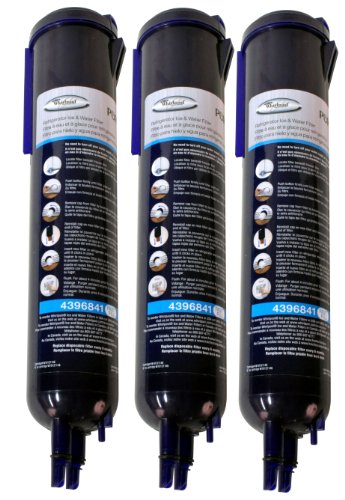Gas + Food = High Consumer Prices...Repeat.
This is the mantra that the media keeps repeating, over and over again, until the message reaches saturation. The problem is, the prices may not go down, even if the price of gasoline and diesel retreat. I can hear a collective "What!?!" echoing through the halls of cyberspace, and yet, you may be dismayed to learn that what I say has more than the ring of truth. If you want to see where all this is headed, follow me to the next paragraph. If not, you have only yourself to blame for being uninformed.
There are a number of things that have contributed to our current situation, and while fuel is a major contributor, lesser known factors have put the global economy on the ropes. Give me a few moments, and I'll hit the high points for you:
American Debt: I'm not talking about your VISA balance, or your inflated mortgage. I'm talking about National debt, estimated at K-175K for every man, woman, and child residing in the United States. Have you ever noticed that politicians always talk about "balancing the budget", and never about "paying down the deficit"? Folks, the US of A is in debt, and will not come out anytime soon. The problem is so dire, that some people were claiming the US was bankrupt in 2006. David Walker, the former Comptroller General (Head Accountant) for the United States, has gone on record, basically saying that if they aren't already bankrupt, should things continue, they will be by 2040. The Chinese now own 1.3 trillion of American debt, and the Saudis and other Arab nations own a substantial share of our debt, along with increased holdings in media outlets, like Time Warner, and property, like the Chrysler building.
The only way for the Federal Reserve to offset this rising tide, and to pay off the debt, is to print more money. They have done this to finance the wars in Iraq and Afghanistan, bail out banks and mortgage lenders, and have decreased the value of our dollar by 41%. While the Fed and President Bush claim to have a "Strong Dollar Policy", the evidence would point to the contrary.
This has led to:
The Resurgence of Precious Metals I owned gold back in high school. At the end of my Senior year, I used some of my graduation money to buy it at 4 an oz. Now, gold is hovering somewhere near 0 an oz. on any given day. Even if you take inflation into account, gold has increased in net value by 200%. Before the current dollar devaluation, and the rise of the Euro, people were betting on the increase of precious metals like platinum, gold, and silver. These are not easily obtained, and must be extracted from tons of hardened rock and sand. Blasting and drilling are the most commonly employed methods of extraction, and create a huge amount of waste. What do you with the remainder of half a mountainside? You haul it off, of course. In doing so, you must have some pretty large equipment that is custom made for that very purpose. In order to beat your competitors to market, you would have to run 24 hour shifts, which, along with extreme terrain, puts increased wear and tear on your equipment and accessories.
This, in part, led to:
The OTR Tire Shortage Off The Road Tires for the great majority of their history, were essentially a loss leader for tire manufacturers. They had to produce them, because some extremely big companies needed them for their equipment. When mines started running around the clock shifts, tire manufacturers did not have the available manufacturing capacity to satisfy the need. To compound the problem, construction saw an upsurge in developing nations, especially in China. The Chinese then began manufacturing their product, increasing raw material costs, like rubber, petroleum, steel, and carbon black. The costs continued to skyrocket, as the price of precious metals and fuel increased, and affected thousands of smaller businesses whose profit margins could not justify the costs of running their equipment.
This, along with:
Ethanol: The Environmentally Friendly Fuel? Environmentalists have always touted ethanol as the wunderkind of alternative fuels. It was supposed to make the United States independent, or at least less dependent on foreign oil. This has not been the case, and it seems nobody took into account the actual human and environmental costs of processing ethanol. Ethanol was never without its costs, as it takes farm machinery to plant and harvest the corn, blowing diesel fumes the whole way, then the corn must be processed, and people have to drive to work to run the factories. Then there's the fact that with the ethanol it takes to fill up an SUV tank, you could feed a grown man for an entire year. Add in increased erosion, the lack of incentive to crop-rotate, and futures speculation, and the current costs of ethanol are stratospheric. Combined with the OTR Tire Shortage, this...
Led to:
The Agricultural Tire and Carbon Black Shortage When something becomes more profitable to produce, tons of people hop on the bandwagon. The only problem is, they have to hop off of another bandwagon to do so. When the tire manufacturers started to focus on filling the requests for OTR Tires, they had to convert some of their existing production lines. Agricultural tires shared some of these lines, and at the time, corn was not the cash crop it is now. I'm sure that you can see where this is going. Flash forward to present time: OEM's like John Deere, Case, and Kubota are having to ship their larger products without tires, and harvest time has not even hit here in the USA.
There are 4 basic ingredients you need to make a steel belted tire: Rubber, oil, steel, and carbon black. While rubber, oil and steel prices are constantly going up, the low man on the totem pole, carbon black, is about to take a jump. Experts are now suggesting a carbon black shortage that will not end until 2017. It seems when you make big tires, you also use alot of carbon black. This could make the cost of our water go up. Huh? Yeah, I know it sounds like my brain missed a few connections, but I am actually all there, for the most part. Refined (or activated) Carbon black has applications in other industries as well, most notably, pellets of the stuff can be used in septic systems, and water treatment plants. If you break open your PUR water filter, that black stuff you see is Activated Carbon. It also is used by the manufacturers of alcoholic beverages( most notably, Vodka) to improve clarity, taste and smell. Higher costs to drive and drink(whether it be water, or alcohol) are in our future.
The costs associated with this (will lead and) have lead to:
Higher Food Costs: Corn is the typical food for cattle, and produces roughly 6 pounds of meat for every bushel. At a bushel, that places beef at per pound, without including labor costs, transportation or processing. Hamburger is nearing a lb where I live, and threatens to go higher, once the fall crops come in. Pork and poultry will be considerably higher as well. This is assuming that we don't attack anybody else, there are no natural disasters in Nebraska, and gasoline continues to fall. Sorry, I'm not placing any bets on that. At least the oil market speculators haven't gravitated to the agricultural commodities markets, yet.
and
Obscene Oil Prices The Saudis were right in one assessment of current gas prices: Supply is not the only problem. Do the math on gas prices being 41% less than current rates. Let's see: .88 a gallon * 59% = .28 a gallon. Not cheap, but at those prices, there would be lines at the gas stations, and sales of SUV's would jump 10% or more. Before the last 8 years of dollar devaluation, this would have been the case. We've now come full circle, back to our debt. But I said this would continue into the future, didn't I. I guess I should be prepared to back that up.
The Sky Has Fallen: Yeah, this is gonna be sort of a downer, but here it goes: Let's talk existing supplies of oil and gas. What do you think the best selling vehicle in China is right now? If you said "an SUV" come forward to claim your prize. They will have as many vehicles on the road as we do within the next 10 years. Their gas is subsidized by the government, ours is taxed. That does not exactly discourage consumption. The Russians, Chinese, and Germans have all secured major pacts for supplies of energy with the Middle East. Guess who has been left out? It sure isn't Indonesia.
We will never be independent of oil, because our entire economy is built around it, not just the automobile industry. One of the primary ingredients of plastic is petroleum, so unless you find a non-toxic, moldable substance that is cost-effective in the very near future, then you are going to be importing and using oil for the foreseeable future. Food supplies are not just subject to external forces (too little supply, drought, floods, fire) they are also subject to foodborne disease, or the fear thereof. One only has to look at how the salmonella scare killed millions of acres of a perfectly safe tomato crop, to get an idea of what a real epidemic could do to the food supply.
On the financial side, the costs of medicare, social security, and government waste will continue to skyrocket. By 2040, it has been predicted that we will be in spending in excess of 250% of our GDP. To put that in perspective, a typical consumer would have to bring home ,000, and spend 0,000, every single year.
The American Empire is due for a full-on collapse within the next 30 years, and quite honestly, there is no politician or group of politicians that can pull us out of this mess. Demand will continue to outstrip supply, and even if supply is available, you might not be able to afford it.
Consume, complain, consume, complain. This is the cycle that needs to broken, before the others could even begin to be fixed. But we won't. Change is uncomfortable, so we'll just cruise down a path to certain destruction. It's the effect of our selfish nature, and the cause of all our ills.















